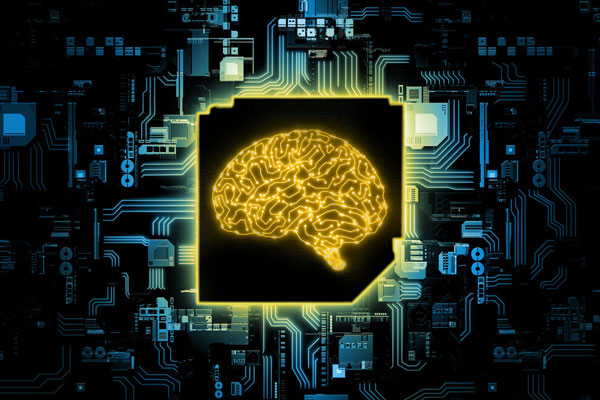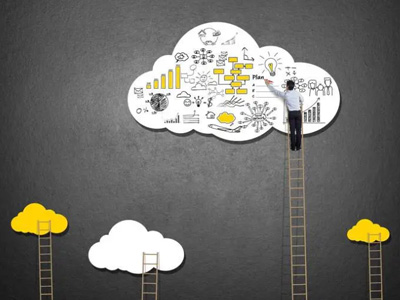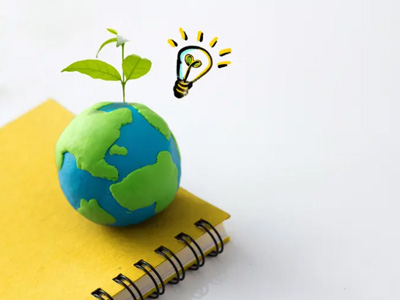Blog
Seven Trends That Will Shape Global Security in 2023

2023 promises to be a very busy year when it comes to global security issues. José María Blanco and Carmen Jordá, manager and head, respectively, of Prosegur's Intelligence and Foresight Office, have identified seven underlying trends that are very likely to materialise in the coming months. Their analysis comes with a warning: we are not talking about static factors here, rather they are pieces of a complex puzzle that interact with one another and feed into each other.
1. Diffuse power. This year will see certain circumstances remain the same, for example, the war that cut short the post-pandemic recovery, the energy crisis or the reconfiguration of supply chains (for example, the relocation of jobs from Asia to the United States). The persistent nature of these factors translates into a higher level of instability and risks: from data cybersecurity to macroeconomics, the reignition of geopolitics as a result of the conflict, legal uncertainty, the technological innovation of organised crime or disinformation that is heightening social extremism. Amongst the biggest factors when it comes to geopolitical friction is the tension between China and Taiwan, with world debt also standing at an all-time high. The power of the state continues to wane in several countries, with subversive or criminal organisations taking advantage of this vacuum.
 2. Social polarisation. One of the most influential and cross-cutting factors when it comes to the instability of the state. According to the Social Unrest Index, this tendency towards extreme polarisation could explode in 2023, fuelled by hate speech and the permacrisis (the persistence of a series of overlapping crises, such as inflation that could top 6% in 80% of the world's countries). This applies to the entire world, with Europe and the USA in the same situation as the Sahel or Latin America. Populism thrives as it presents simple solutions to complex problems, taking advantage of founded or unfounded mistrust amongst the population towards institutions or corporations, such as financial firms. Many governments are tightening controls on companies and increasing the taxes they pay, potentially leading to legal uncertainty and discouraging investment.
2. Social polarisation. One of the most influential and cross-cutting factors when it comes to the instability of the state. According to the Social Unrest Index, this tendency towards extreme polarisation could explode in 2023, fuelled by hate speech and the permacrisis (the persistence of a series of overlapping crises, such as inflation that could top 6% in 80% of the world's countries). This applies to the entire world, with Europe and the USA in the same situation as the Sahel or Latin America. Populism thrives as it presents simple solutions to complex problems, taking advantage of founded or unfounded mistrust amongst the population towards institutions or corporations, such as financial firms. Many governments are tightening controls on companies and increasing the taxes they pay, potentially leading to legal uncertainty and discouraging investment.
3. Stakeholder economy: The IMF asserts that there will be a drop in world GDP growth combined with chronic inflation, posing the stark risk of a global recession. In Europe, this already bleak economic scenario could get even worse if the war persists and a harsh winter depletes energy reserves, unlike other producing regions that would benefit from these conditions. These circumstances would result in the quick reconfiguration of the energy market and unprecedented measures in countries that could decide to make adjustments to their economic models, such as introducing price limits and new taxes. Incidentally, they could have positive consequences, such as boosting the bioeconomy to harmonise innovation, sustainability and growth.
 4. Individual empowerment and a change of values. The latter is all about greater citizen participation in public affairs, closely linked to technological access to information. This could lead to more fragmented (the division of large causes such as environmentalism into smaller groups) yet radicalised vindications when associated with the polarisation that the world views applying the logic of "us against them". Both technology and the uncertainty generated by economic crises can lead to individualism and an "every man for himself" attitude. Another emerging effect is the rejection of people posing on social media as the demand for authenticity increases, as demonstrated by the BeReal app.
4. Individual empowerment and a change of values. The latter is all about greater citizen participation in public affairs, closely linked to technological access to information. This could lead to more fragmented (the division of large causes such as environmentalism into smaller groups) yet radicalised vindications when associated with the polarisation that the world views applying the logic of "us against them". Both technology and the uncertainty generated by economic crises can lead to individualism and an "every man for himself" attitude. Another emerging effect is the rejection of people posing on social media as the demand for authenticity increases, as demonstrated by the BeReal app.
5. Technological convergence. This encompasses several tendencies such as the readjustment of big tech, the technological rivalry between powers and the interest in the technological sovereignty of other countries. The disruptive capacity of artificial intelligence (AI) consolidates its power, but also its criminal potential, for example, deepfakes, as can be the case quantum computing or mixed realities. This duality of opportunity and risk is seen as having the potential to assist with business decisions through the Internet of Behaviours, but also the threat of increasingly virulent cyberattacks and extortions in places like Spain or Latin America. Furthermore, this year will see the rise of unmanned vehicles and the vertiports.
 6. Health and well-being. The demand for physical and emotional well-being has experienced an upturn since the pandemic, with technology responding by taking a more preventive approach, offering self-diagnostic applications using artificial intelligence. However, medications that include narcotic substances in their formula or medication involving psychological treatments that cause addictions and the use of the black market are also on the rise. Another emotional tendency is well-being fatigue: the obsessive concern for health with symptoms of anxiety or alienation due to the abusive use of personal care devices and applications.
6. Health and well-being. The demand for physical and emotional well-being has experienced an upturn since the pandemic, with technology responding by taking a more preventive approach, offering self-diagnostic applications using artificial intelligence. However, medications that include narcotic substances in their formula or medication involving psychological treatments that cause addictions and the use of the black market are also on the rise. Another emotional tendency is well-being fatigue: the obsessive concern for health with symptoms of anxiety or alienation due to the abusive use of personal care devices and applications.
7. Environment and sustainability. The UN asserts that, if the Internet were a country, it would be the sixth most polluting country on the planet. This reflects the paradox between sustainability's technological ally and the massive amount of energy it consumes. With this in mind, green activism (or extremism) is likely to turn up the pressure on politics and business in both the digital and sustainable transformation processes. Ecological crimes, such as the trafficking of wood, illegal mining operations and the risk of conflicts, as well as water disputes, will also increase.